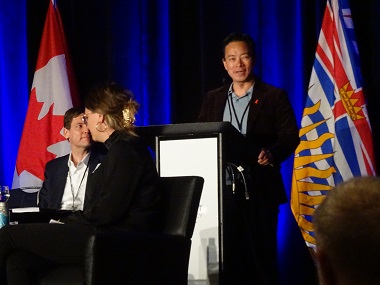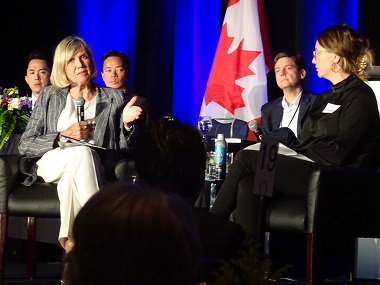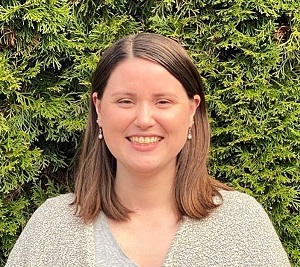
Premier David Eby and Vancouver Mayor Ken Sim addressed the prayer breakfast and read from the Beatitudes and the Psalms.
Creating Conversation is a weekly editorial, curated by the Centre for Missional Leadership (CML), which gives opportunity for people to speak about issues they believe are vital for the church in Vancouver.
One of the goals of this weekly article is to spark dialogue – and action. We invite you to join the dialogue here on the Church for Vancouver website.
We also invite you to use the article as a discussion starter with your small group, church staff, friends and your neighbours. Thanks for participating in the conversation!
I recently attended the 56th annual BC Leadership Prayer Breakfast in Vancouver. This was the first time I had been at an event such as this and I went slightly reluctant, for several reasons.
The first being the time. The program was slated to begin promptly at 7:30 am, which entailed an earlier start to the day than I typically have (I’d like to blame my youngest who likes to make his struggles with sleep a shared experience, but that’s probably not entirely fair).
The second reason I was hesitant was my assumption about how I would feel in the room. Having emerged from a faith community in my childhood that certainly was unsupportive of women in positions of leadership and, more recently, a church where egalitarianism was not a settled issue, I have found myself a little shy in rooms of religious people as I don’t know how I’ll be received.
I found this assumption, to my surprise, unfounded. My organization had not purchased an entire table and so we – I attended with my coworker – were seated with people we didn’t know. This is not normally my favourite social setting but the people that we were seated with were very interesting and friendly, so it ultimately was a pro for me.
As a person who often finds themselves on the logistical end of events, I was impressed with those who organized the event. The task of getting 800 people in a room at 7 am for any event is quite a feat and there were some completely unavoidable logistical bumps that were impressively handled.
A bit mixed

The interview with Kathleen Mahoney was excellent.
Overall, though, the event ended up feeling a bit mixed for me. The program played out like a sort of church service, with a curious, at least to me, mix of political and religious elements, complete with the singing of the national anthem, wonderful land acknowledgement and prayer.
The dais was set with national and provincial flags and addresses were made by the Premier, leader of the Opposition and Vancouver’s Mayor.
The main address was scheduled to be an interview with Chief Phil Fontaine, Indigenous Canadian leader, advocate and former National Chief of the Assembly of First Nations.
Unfortunately, he had fallen ill the previous evening, so his wife, Kathleen Mahoney, a lawyer who has done a lot of human rights work, including working on Canada’s TRC, filled in. The interview was excellent and was preceded by a clip from ForGive, a short documentary about Phil Fontaine’s 2009 visit to the Vatican, You can find the documentary here.
On the cusp
In the program, the expressed purpose was to provide “an opportunity to participate in fellowship and reflection” that would transcend “business interests and despite political differences.” In some ways, the breakfast fulfilled this, but it more sat on the cusp of meeting this purpose. Ultimately, I felt that I was experiencing a potential, a view, of what this event could be.
With a captive audience of nearly 800 people, representing a vast network of Christian communities and organizations across the Lower Mainland, this event has a wide reach. I applaud the planning committee’s decision to platform Indigenous voices and raise the often uncomfortable topic of reconciliation and the church’s direct role and responsibility in this journey. I hope this continues.
The church has power
The church has historically held a great deal of power. This power has existed in the realms of politics, money and cultural influence, as well as other places, and, regardless of what some may say, the church still has power. The church has not always used this power and influence in good ways. Some of what Kathleen Mahoney spoke of in her interview was a difficult, but necessary reminder of this fact.
I wish there had been more time spent on the interview at the Prayer Breakfast. While it was good to see local and provincial representation from several political parties, the time allotted for greetings from politicians, I believe, could have been lessened to afford more time for the interview, for reflection on deeper issues.
I do not say this to critique the organizers. I say this because this gathering is a unique opportunity for the church and Christian community to hear about and reflect on meaningful issues and I want to fit in all the time possible for that reflection.
The church has power. I would guess that every person in the room that morning is connected to a larger community or organization. An amazing amount of potential exists in that room to generate conversations about things such as reconciliation, or the best uses of church resources, or how to work with local politicians to address crises like housing or the environment, or how to form beautiful relationships within the various neighbourhoods and cities we live in.

Allison Williams
There is much we can reflect on, must reflect on, and at this event, it can be done while eating bacon, which, in my opinion, is always a good thing. I look forward to seeing what is planned for next year.
Allison Williams is a graduate student at the Vancouver School of Theology and works at Reflector Project, a local non-profit organization speaking and teaching non-divisive, hopeful theology. She is co-host of Rector’s Cupboard, a podcast that explores themes of theology and culture.
